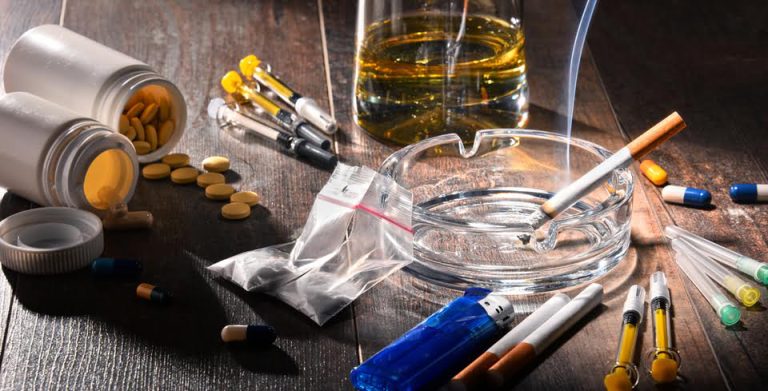Different drugs have different effects on your body, both during use and as your system begins to heal. Choosing to detox at home can be dangerous and potentially deadly without medical supervision. For example, quitting “cold turkey” can lead to serious issues when trying to quit alcohol such as seizures and severe dehydration.
What Is Drug Detoxification?
Katie’s goal every morning, is to set an intention for the day, to help each of our clients find their way out of substance use, with compassion, empathy, and the courage to take these difficult steps. Chad’s comprehensive skill set and leadership ensure the facility operates safely and efficiently. Elevate’s medical team monitors these symptoms closely, using holistic methods to minimize discomfort and prevent complications. These activities, rooted in our non-12-step philosophy, are just a starting point, helping you build a foundation for long-term recovery while easing withdrawal discomfort. The self-help support group message is that addiction is an ongoing disorder with a drug addiction treatment danger of relapse. Self-help support groups can decrease the sense of shame and isolation that can lead to relapse.
What Medications are Used in Drug Detox?
- After drug detox, individuals transition into structured treatment and support programs to maintain sobriety and prevent relapse.
- If a person experiences severe psychological symptoms, it could lead them to want to harm themselves.
- Detoxification can be intimidating, and working with professionals to understand the drug detox and withdrawal process can provide the best approach to overcoming substance use disorder.
- However, these effects can be rare and typically only manifest after extended and high-frequency and intensity of use.
- If you or someone you love is struggling with addiction, you know firsthand how difficult it is to break free from the grip of drugs and alcohol.
- Each journey starts with committing to an effective professional detox program.
On the contrary, drug detox is far from actually curing drug dependency; more often than not, patients experience intense cravings and other withdrawal symptoms after the detox. Drug detox can take anywhere between a few days and several months, as each detox center has a different timeline based on the specific procedures they provide. The duration of the drug detox process can also depend on various individual factors. Ultimately, drug detox should be the first step toward recovery—but not the end goal. Therefore, after undergoing detox treatment, the staff of the detox facility will check your vitals, ensure you are stable, and help you prepare for the next stage of your drug addiction treatment. Before initiating the detox process, the drug detox clinic will evaluate your physical and mental health condition.
- Some people who don’t require a lot of supervision might simply check in with their regular doctor’s office or a home health agency at scheduled intervals during their detox.
- The ANR Clinic, which provides ANR treatment, differs from traditional drug detox centers in terms of quality, facilities, and staff competence.
- Researchers from Duke University found that 75% of Americans who underwent inpatient drug detoxification between 2003 and 2011 were battling opioid addiction.
- Thomas has worked at EAS for over 12 years and has held every clinical role in the company.
- The main downside of outpatient programs is that they don’t provide 24/7 support and monitoring.
Need help now? Contact our free 24/7 addiction treatment helpline

Drug detoxification varies depending on the location of treatment, but most detox centers provide treatment to avoid the symptoms of physical withdrawal from alcohol and from other drugs. Most also incorporate counseling and therapy during detox to help with the consequences of withdrawal. If you are struggling with an addiction to drugs and alcohol, it is important to get help from a qualified detoxification center or therapist.
Rapid detox is a method of removing substances from a user’s system faster than regular detox. Advocates of rapid detox say it’s a faster way to get the drugs out of the body while avoiding painful withdrawal symptoms. Intensive inpatient medical rehabs offer the highest level of care and monitoring. These programs can keep you safe and medically stable while you taper off dangerous drugs. Some people who don’t require a lot of supervision might simply check in with their regular doctor’s office or a home health agency at scheduled intervals during their detox.
Dehydration can be caused by common withdrawal symptoms like vomiting, diarrhea, or sweating and can lead to additional health issues. Drinking plenty of water helps keep you hydrated and potentially avoid dehydration-related problems. Symptoms such as seizures, severe dehydration, or significant cardiovascular issues, especially when quitting cold turkey, can be deadly.
Contents
It can lead to severe withdrawal symptoms that are difficult to manage without medical support, and increases the risk of relapse, potentially resulting in a fatal overdose. Medications like methadone and buprenorphine are used in medically assisted opioid detox programs to alleviate discomfort and prevent severe complications. For example, opioids (e.g., heroin, oxycodone, and fentanyl) can have a particularly challenging detox process. Because opioids can create such an intense dependence, opioid withdrawal symptoms are known to be pretty uncomfortable. In this blog, we’ll talk about why detox is a crucial part of addiction recovery, what are the different detox programs, and how you can find the appropriate detox treatment for your needs.

What Are Severe Withdrawal Symptoms?
A successful drug detox relies on multiple strategies aimed at safety and effectiveness. Medical professionals can monitor the process, prevent complications, and manage symptoms safely. Benzodiazepines, such as Xanax, are commonly prescribed to treat anxiety disorders but can be highly addictive if misused or taken for an extended period. Gradual tapering off these drugs under medical supervision is essential to prevent severe drug detox or life-threatening withdrawal symptoms. Our detox program provides a safe and supportive environment for this process. Detoxing from opioids without medical help poses a significant risk of severe opioid withdrawal symptoms, complications, and relapse.
Products & Services
Founded in 2014, Addiction Resource provides free support and guidance for addiction recovery. The Partnership to End Addiction is a leading national nonprofit that helps families dealing with substance use. They offer lots of resources like educational materials, a helpline, and advice on prevention, treatment, and recovery.
Legg igjen en kommentar